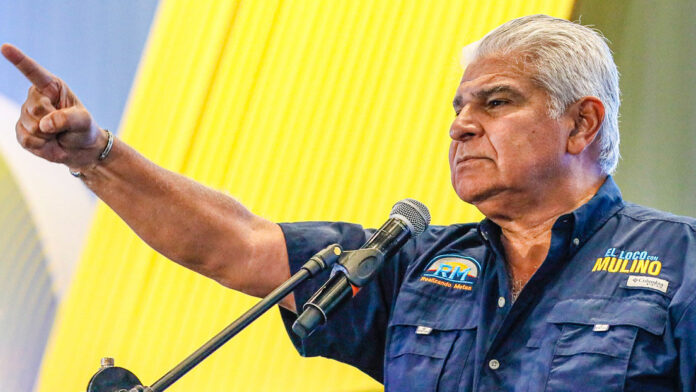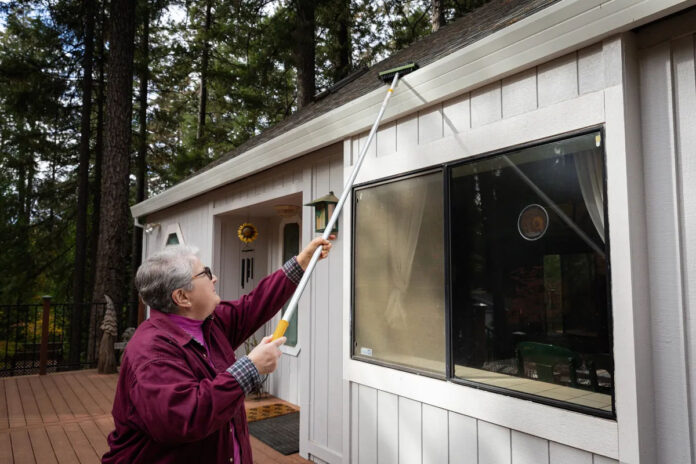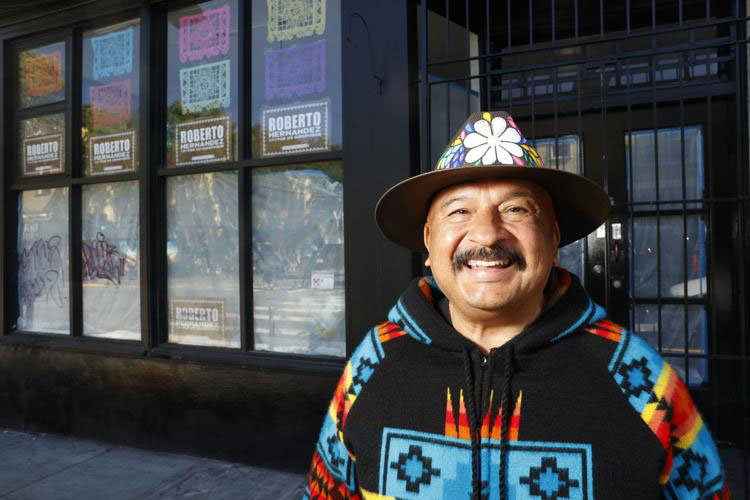by Levi Sumagaysay
Spend any time thinking or talking about insurance in California these days and you’re bound to hear the word “mitigation.”
Fire officials, lawmakers, insurance agents and others are asking homeowners to help lower the risk of devastating wildfires by making improvements to their properties — in some cases at great expense — and often in the context of trying to hang on to their insurance policies. The state has spent about $3.7 billion on forest management in the past seven years. Communities, fire districts and others are doing their part, too.
But some insurance companies citing growing risks and costs have paused or stopped writing new policies in California, causing a crisis of home-insurance affordability and availability. Some homeowners have seen their premiums spike or are being priced out, while others have been forced to turn to the ever-growing FAIR Plan, the insurer of last resort that offers less coverage but higher insurance premiums anyway.
As Insurance Commissioner Ricardo Lara rolls out his plan to try to reverse that trend, three state lawmakers are pushing for mitigation to be taken into account when insurers set premiums or when they decide whether to offer policies at all. Or they want mitigation to be more effectively tracked and strategized.
“We believe that if you do the homework, you should get the credit,” said state Sen. Josh Becker, the Democrat representing Menlo Park. “As a state, we’re doing that homework.”
Becker’s staff cites the billions of dollars the state has spent on reducing fuel and managing vegetation since 2017, when wildfires consumed many parts of California. The sum doesn’t include other spending on fire engines, air tankers and increasing staff for Cal Fire, which has added about 4,500 positions in the past decade.
A bill authored by Becker seeks to incorporate mitigation into insurance companies’ underwriting decisions — when they consider whether to write or renew policies. Senate Bill 1060 awaits a hearing in the Senate Appropriations Committee.
One of the regulations Lara has unveiled as part of his plan to try to fix the state’s insurance market involves allowing insurers to use catastrophe models in rate-making, which includes taking mitigation into account. But some say that’s not enough to address the availability of insurance.
Former state Insurance Commissioner Dave Jones recently told CalMatters that Becker’s bill is needed specifically for underwriting because the insurance commissioner’s authority is limited to rate-making.
“Local, state and federal governments are spending billions of dollars in forest treatments, so homeowners ought to see a benefit,” Jones said. “That’s not happening now, but should happen.”
Wildfire mitigation and risk
Studies show that mitigation is reducing wildfire risks. A recent study by the National Association of Insurance Commissioners found that structural modifications can reduce wildfire risk by 40%, and, when combined with vegetation modifications, can reduce risk by 75%. A subsequent Moody’s study found that utility Southern California Edison’s actions to harden its power grid reduced the risk of catastrophic wildfire losses by 75% to 80%.
But insurance-industry experts have concerns about Becker’s bill. For one thing, they say incorporating mitigation into underwriting shifts more financial risk to insurers.
In addition, they say they already use models that account for mitigation.
Sheri Lee Scott, an actuary for a Milliman Property & Casualty practice in Orange County, said the bill is yet another regulation that could “exacerbate” the insurance crisis.
“Insurance companies are trying their best to incorporate (mitigation) already,” Scott said, pointing to a recent state regulation directing insurers to incorporate mitigation into determining premiums — which Scott wrote in a report “presents tremendous challenges for insurers in terms of compliance and the potential erosion of adequate rates for wildfire risk.”
The insurance commissioner said his office started enforcing that rule on considering mitigation last year, but homeowners, insurance agents, fire chiefs and other lawmakers say the different ways everyone is trying to reduce wildfire risk isn’t making enough of a dent in the state’s insurance crisis.
Bernard Molloy, fire chief of Murrieta, said during a public workshop hosted by the Insurance Department last week that “residents don’t receive credit” for the “tremendous amount of work” they put into trying to reduce wildfire risk. Jorge Escobar, a Bay Area resident, said during the same workshop that he had just asked the Moraga fire district whether insurance companies are taking mitigation into account. “The answer was, surprisingly, no… Why isn’t this being mandated?” he asked.
Tina Purwin, an insurance agent in Northridge, told CalMatters her clients get notices that they’re not being renewed despite taking action to avoid wildfire risk.
“Carriers are being ultra picky,” Purwin said. “They’re looking for any way to not take the risks.”
At another public hearing on insurance issues last week — by the Little Hoover Commission, the independent state oversight agency — Nevada County Supervisor Heidi Hall said the Sierra Nevada-area residents she represents are spending “tens of thousands of dollars” on hardening their homes, and that the “county itself has put in millions of dollars, with the help of Cal Fire, to put in fire breaks.”
Yet, she said “we’re not seeing discounts from insurance companies. They’re still leaving.”
Assemblymember Freddie Rodriguez, a Democrat representing Chino, authored another bill related to mitigation. Assembly Bill 2983 calls for the Insurance Department and the California Office of Emergency Services to work together on figuring out whether investments in mitigation are helping insurance availability.
Project assessments would have to be published on state websites. And a representative of the Insurance Department would be added to the board of the California Wildfire Mitigation Program.
“Some people think (mitigation is already taken into account), some don’t,” Rodriguez said. “We need to bring everyone together. We need to talk about it.”
Rodriguez’s staff said both the Insurance Department and the mitigation program appear to be open to the board-representative idea. The Insurance Department did not answer questions and the emergency services agency did not respond to questions in time for publication.
Earlier this month, the Assembly Insurance Committee approved AB 2983 and re-referred it to the Assembly Appropriations Committee.
‘They should not be losing their insurance’
Another bill would require the Insurance Department to evaluate every three years whether to update its Safer from Wildfires regulation, which identifies steps property owners and officials can take to protect their homes and communities. The steps include installing fire-rated roofs, upgrading windows, removing combustible sheds and more. The department adopted the regulation in 2022 and says on its website that taking these measures “can help you save money on your insurance.”
Assemblymember Damon Connolly, a Democrat representing San Rafael, authored AB 2416, which he said would “lock in periodic updates to the program so it’s most effectively serving consumers.”
Connolly said his staff is in talks with the Insurance Department, which he said is open to discussing his bill. He also said he has made amendments to address insurance-industry concerns. The Insurance Department did not answer questions about the bill.
The assemblymember also said that not only should property owners get discounts when they take the steps outlined in the regulation, “I would say if consumers are doing these steps, they should not be losing their insurance.”
The Assembly Insurance Committee has referred his bill to the Assembly Appropriations Committee.
Lawmakers representing California in Congress are trying to make mitigation measures matter, too. U.S. Rep. Mike Thompson, the Democrat who represents Napa and other counties, said during a press conference last week in Santa Rosa that his bill, HR 7849, would establish a program for individual homeowners in certain areas to receive grants of up to $10,000, as well as tax credits for homeowners and businesses, for mitigation.
The legislation, co-authored by U.S. Rep. Doug LaMalfa, the Republican who represents rural Northern California, was introduced in March and referred to the House Ways and Means Committee and the Transportation and Infrastructure Committee.
Thompson said that as he and his colleagues tried to figure out how they could help on a national level, “what we heard repeatedly from insurance companies was: Make sure there’s disaster resilience in building, that homeowners (are doing) everything necessary to protect their homes.”











